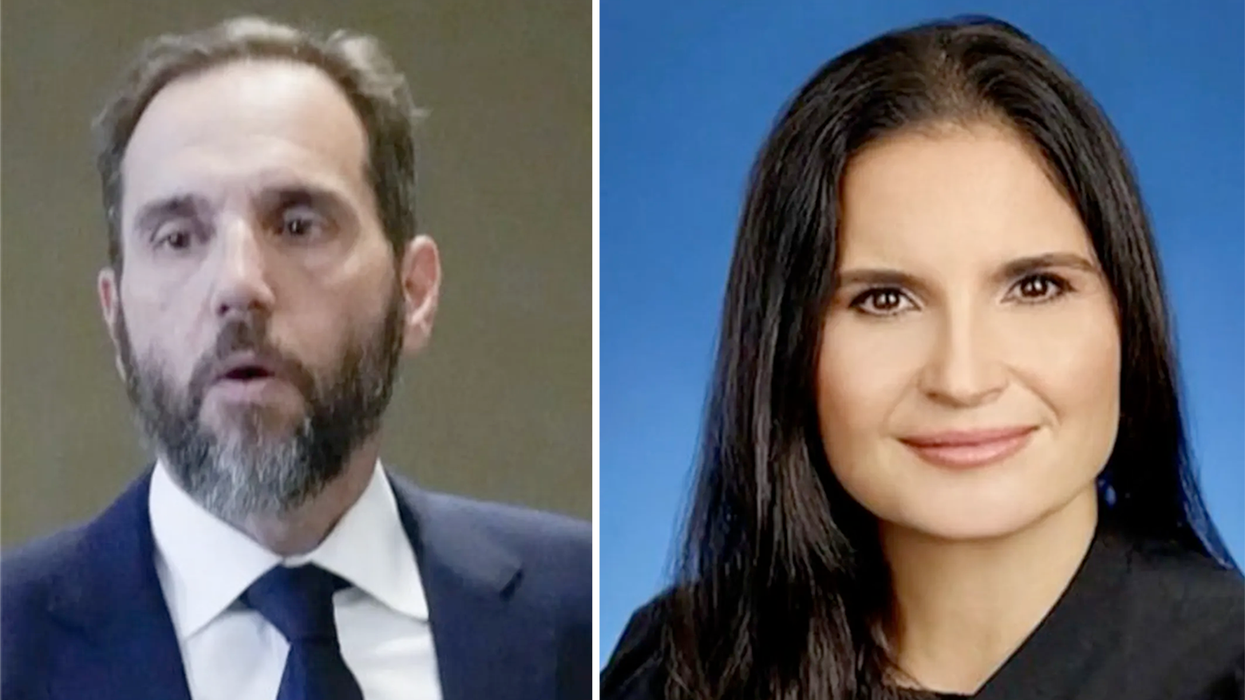On Monday, U.S. District Judge Aileen Cannon dismissed the classified documents case against former President Donald Trump on the grounds that Department of Justice special counsel Jack Smith was unconstitutionally appointed. Legal experts say that despite the ruling, Smith now has new avenues of opportunity.
USA TODAY reported that Cannon — who was appointed to the federal bench by Trump during his last year in office – could be in danger of being overturned on appeal or losing the case to a different judge, according to several prominent legal scholars. The DOJ confirmed that Smith is appealing Cannon's decision to the 11th Circuit Court of Appeals, which has already overturned the Trump-appointed judge twice in Trump-related rulings.
"DOJ must appeal right away... This finally gives Jack Smith an opportunity to seek her removal from the case," Harvard University law professor emeritus Laurence Tribe tweeted. "I think the case for doing so is very strong."
READ MORE: 'She will be reversed': Expert predicts Cannon will fail if she tries to give Trump immunity
Cannon wrote in her 93-page decision to dismiss the case that special counsel appointments aren't valid unless they're appointed by the president of the United States and confirmed by the U.S. Senate. This was notably an argument Supreme Court Justice Clarence Thomas made in his concurring opinion in the Court's 6-3 decision in the Trump v. United States case to grant presidents absolute broad criminal immunity for "official acts."
"This is bonkers. She is just making things up," tweeted New York University law professor Noah Rosenblum.
The DOJ has 30 days to officially appeal to the 11th Circuit, after which the circuit will review briefs submitted by both the DOJ and by Trump's defense attorneys. A reversal by the 11th Circuit could come relatively quickly: Not just because the circuit's judges have overturned Cannon in the past, but because past special counsel appointments that haven't met Cannon's threshold were able to see their investigations through to the end without interference.
Since the start of the 21st century, there have been seven special counsels appointed by attorneys general or deputy attorneys general who were free to conduct their investigations without Senate confirmation. Special counsels John Danforth (Waco), James Comey (Valerie Plame affair), Robert Mueller (Russian interference in the 2016 election), John Durham (alleged Trump campaign coordination with Russia), Robert Hur (then-Vice President Joe Biden's handling of classified documents) and David Weiss (ongoing Hunter Biden probe) were all authorized by the DOJ to investigate their respective cases as they saw fit.
READ MORE: Sonia Sotomayor: Supreme Court just gave presidents power to assassinate political rivals
Even if the 11th Circuit overturns Cannon, it would likely be appealed up to the Supreme Court, who would almost certainly take months before even deciding to issue a writ of certiorari to hear the case. This means it's a virtual certainty that Trump will not stand trial on the 37 felony counts Smith indicted him on before the election.
If Trump ends up winning the November election, he would have the power as president to have his appointed attorney general dismiss both of Smith's federal indictments. And even if he didn't, the DOJ has a longstanding policy of not prosecuting sitting presidents while they're in office.
READ MORE: Cannon refusing judges' requests to hand off Trump case is a 'break-glass situation': expert
Click here to read USA TODAY's report in full.


